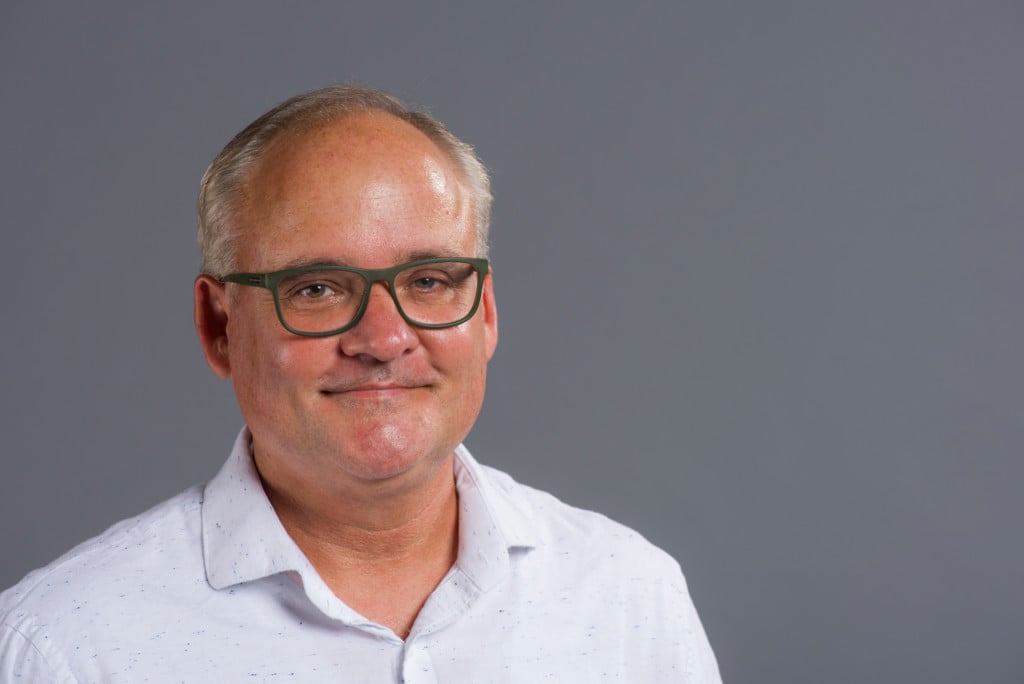When Panic Gives Way to Meaningful Connections
Maybe he's obsessed or maybe he's just losing it.

As the plane lifts off and climbs, I stare out the window.
I see mountains dominate civilization. I see whitecaps kiss the coastline. I see buildings become smaller, smaller, smaller.
Somewhere down there, a hand-held device with a cracked screen has become tethered to somebody else.
From seat 24F, I nod farewell to an addiction.
On a January family trip to a land of beaches and fun, I got out of my cab, grabbed my bags, thanked the driver, took a step toward the hotel entrance and felt a tidal wave crash into my stomach.
I didn’t have my cell phone.
I felt my left-front pocket. It wasn’t there. I felt my right-front pocket. It wasn’t there. I patted my back pockets, where I never put my cellphone. It wasn’t there. I looked on the ground. It wasn’t there. I repeated the process. It wasn’t there.
I looked for the cab. It was seeking another fare.
I’d put my cellphone on my lap and, fatigued from a long flight, forgotten about it. I suspect that as I got up from the back seat, my phone tumbled onto the floor. The hotel staff told me that it managed to contact the driver, who said he didn’t find a phone but that he’d look again.
By that time, I’d already transitioned out of “Panic,” the first of my brand-new PHADDAC™ stages of Losing a Cell Phone When You’re Out of the Country and Can’t Readily Get a New One.
The seven stages go like this:
PANIC (First 15 minutes). “Oh my god! Oh my god!! OMG!!! My phone is my life! That phone is me! My email and Twitter and apps, my music and Facebook and maps! What will I do if I find five minutes free?! What will I do if somebody texts me?! OMG! I think I’m going to be sick.”
HOPE (Next two hours). “The cab driver seemed like such a nice, honest man. Surely, he’ll look again, find my cell phone and return it to me. I soon could hear from the front desk.”
ANGER (Next two hours). “Damn that cab driver. Damn the front desk, too.”
DEPRESSION/ANXIETY (The rest of Day 1): “I don’t want to talk to anybody. I don’t want to look at anybody. How will I function? How will I survive?”
DISCOMFORT (Day 2). “I have nothing in my left hand or on my lap, and I have nothing in my ears. I have nothing to do but breathe and settle into my surroundings. Look. Talk. Listen. Be. This is so weird.”
ACCEPTANCE (Day 3): “This isn’t so weird, after all. This seems human or something.”
CHANGE (Day 4). “What cell phone? Peace be with that cab driver.”
After two days, I found myself not thinking about my cell phone unless somebody mentioned it. I felt more connected to my wife and to others who were with us. I felt more alive. I felt free again.
I’m hardly the first to acknowledge a cell-phone addiction and to write about it. For some of us, the appeals of our spouses weren’t enough. We had to lose our phones and go cold 4G.
We finally understood the shallowness of the connections that our phones provided, especially through Facebook and similar obsessions.
Suddenly, we revived the depth of direct experience. We aimed for meaningful connections.
And when I think of a place to put down the phone and connect, I think of Tallahassee. I think of the conversational crossing guard at the corner of Miccosukee and Magnolia, the thoughtful Walgreens employee with a handy umbrella.
I think of an interview with a coffee-company founder who looks to change the world, with an allergist who wants readers to understand their afflictions and possible remedies, and with pastors who emphasize unity over division and compassion over judgment.
I think of sunny people and days. I think of hills and trees, flowers and bees. See page 70.
Of course, I bought another cell phone. But I obtained a tool, not another addiction.
Like you, I have much to truly connect within our beautiful city. If you happen to see me obsessed with my new phone, I hope you call me on it.
Pete Reinwald


